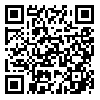1. Lent RW, Taveira MDC, Pinto JC, Silva AD, Blanco Á, Faria S, et al. Social cognitive predictors of well-being in African college students. J Vocat Behav. 2014;84(3):266–72. [
DOI]
2. Gurel NA. Effects of thinking styles and gender on psychological well-being [Thesis for MSc]. [Ankara, Turkey]: Middle East Technical University; 2009. [
Article]
3. Tuominen-Soini H, Salmela-Aro K, Niemivirta M. Achievement goal orientations and academic well-being across the transition to upper secondary education. Learn Individ Differ. 2012;22(3):290–305. [
DOI]
4. Fiorilli C, De Stasio S, Di Chiacchio C, Pepe A, Salmela-Aro K. School burnout, depressive symptoms and engagement: their combined effect on student achievement. International Journal of Educational Research. 2017;84:1–12. [
DOI]
5. Eccles JS, Roeser RW. Schools, academic motivation, and stage‐environment fit. In: Lerner RM, Steinberg L; editors. Handbook of adolescent psychology. Wiley; 2009. [
DOI]
6. Nguyen T vy T, Deci EL. Can it be good to set the bar high? the role of motivational regulation in moderating the link from high standards to academic well-being. Learn Individ Differ. 2016;45:245–51. [
DOI]
7. Lent RW, Taveira MDC, Pinto JC, Silva AD, Blanco Á, Faria S, et al. Social cognitive predictors of well-being in African college students. J Vocat Behav. 2014;84(3):266–72. [
DOI]
8. Tuominen-Soini H, Salmela-Aro K. Schoolwork engagement and burnout among Finnish high school students and young adults: Profiles, progressions, and educational outcomes. Dev Psychol. 2014;50(3):649–62. [
DOI]
9. McBrien J, Dooley K, Birman D. Cultural and academic adjustment of refugee youth: Introduction to the special issue. Int J Intercul Relat. 2017;60:104–8. [
DOI]
10. Samson J. Relationship between social, emotional adjustment with academic achievement of undergraduate student of Ahmadu Bello university, Zaria, Kaduna State-Nigeria [Thesis for MSc]. [Zaria, Nigeria]: Ahmadu Bello University; 2016.
11. Mudhovozi P. Social and academic adjustment of first-year university students. Journal of Social Sciences. 2012;33(2):251–9. [
DOI]
12. Çıkrıkçı Ö, Erzen E. Academic procrastination, school attachment, and life satisfaction: a mediation Model. J Rat-Emo Cognitive-Behav Ther. 2020;38(2):225–42. [
DOI]
13. Xie YJ, Cao DP, Sun T, Yang LB. The effects of academic adaptability on academic burnout, immersion in learning, and academic performance among Chinese medical students: a cross-sectional study. BMC Med Educ. 2019;19(1):211. [
DOI]
14. Ashkoti S, Kord B, Jadidi H. Development of a causal model of academic adjustment based on emotional self-regulation and orientation of tendency dominance and the mediating role of students' academic flourishing. Journal of Psychological Science. 2022;21(113):1005–20. [Persian] [
DOI]
15. Koole SL. The psychology of emotion regulation: an integrative review. Cogn Emot. 2009;23(1):4–41. [
DOI]
16. Zimmerman BJ, Pons MM. Development of a structured interview for assessing student use of self-regulated learning strategies. American Educational Research Journal. 1986;23(4):614–28. [
DOI]
17. Fayand J, Akbari M, Moradi O, Karimi K. The Effectiveness of Emotional Self-Regulatory Model on Improving the Quality of Life in Multiple Sclerosis Patients. Journal of Health and Care. 2019;20(4):301–11. [Persian] [
Article]
18. Ames C. Classrooms: Goals, structures, and student motivation. J Educ Psychol. 1992;84(3):261–71. [
DOI]
19. Domurath A, Coviello N, Patzelt H, Ganal B. New venture adaptation in international markets: a goal orientation theory perspective. Journal of World Business. 2020;55(1):101019. [
DOI]
20. Keyes CLM. The mental health continuum: from languishing to flourishing in life. J Health Soc Behav. 2002;43(2):207. [
DOI]
21. Salmela-Aro K, Savolainen H, Holopainen L. Depressive symptoms and school burnout during adolescence: evidence from two cross-lagged longitudinal studies. J Youth Adolesc. 2009;38(10):1316–27. [
DOI]
22. Delavar A. Educational and psychological research. Tehran: Virayesh Pub; 2019. [Persian]
23. Moradi M, Soleimani Khashab A, Shahabzadeh S, Sabaghian H, Dehghanizadeh MH. Testing for the factor structure and measurement of internal consistencyof the irani version of academoic well-being questionnaire. Quarterly of Educational Measurement. 2016;7(26):123–48. [Persian] [
Article]
24. Elliot AJ, Murayama K. On the measurement of achievement goals: Critique, illustration, and application. J Educa Psychol. 2008;100(3):613–28. [
DOI]
25. Larsen RJ, Prizmic Z. Affect regulation. In: Baumeister RF, Vohs KD; editors. Handbook of self-regulation: research, theory, and applications. New York: Guilford Press; 2004.
26. Diener E, Biswas‐Diener R. Happiness: unlocking the mysteries of psychological wealth. Wiley; 2008. [
DOI]
27. Baker RW, Siryk B. Measuring adjustment to college. J Couns Psychol. 1984;31(2):179–89. [
DOI]
28. Perret P, Ayad M, Dauvier B, Congard A. Self- and parent-rated measures of personality are related to different dimensions of school adjustment. Learn Individ Differ. 2019;70:182–9. [
DOI]
29. Nourali H, Hajiyakhchali A, Shehniyailagh M. The effects of teaching cognitive regulation of emotion strategies on social adjustment and well being of male gifted students. Journal of Psychological Achievements. 2018;25(2):91–110. [Persian] [
Article]
30. Umaña‐Taylor AJ, Wong JJ, Gonzales NA, Dumka LE. Ethnic identity and gender as moderators of the association between discrimination and academic adjustment among Mexican‐origin adolescents. J Adolesc. 2012;35(4):773–86. [
DOI]
31. Millings A, Buck R, Montgomery A, Spears M, Stallard P. School connectedness, peer attachment, and self‐esteem as predictors of adolescent depression. J Adolesc. 2012;35(4):1061–7. [
DOI]

 ، بهمن کرد*2
، بهمن کرد*2 

 ، هوشنگ جدیدی3
، هوشنگ جدیدی3 





